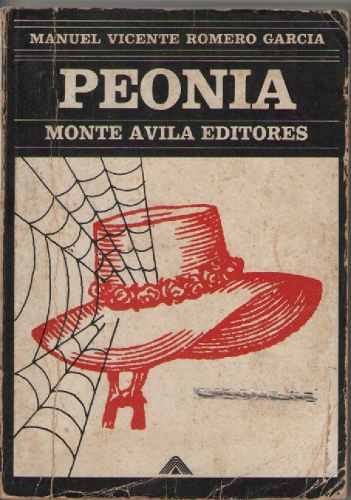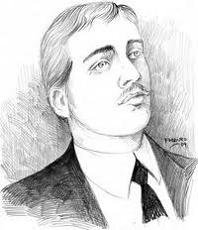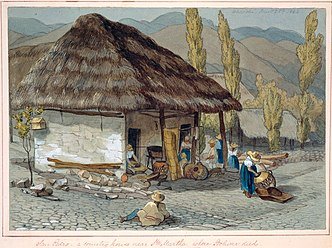First novel where the criollismo and the rural are the ink and the role of the Venezuelan context, using its own linguistic and cultural idiom. Each character is perceived as part of the context and in turn is with him. Playing to change the characters of the room is, disappear their fusion. For example, Tío Pedro, owner of Hacienda Pionía and head of the family, defines his actions as typical of the rural zodiac. An executioner landowner on a deplorable estate that is maintained with a lot of physical effort, little monetary investment and archaic technology
Primera novela donde el criollismo y lo rural son la tinta y el papel del contexto venezolano, utilizando un modismo lingüístico y cultural propio. Cada personaje se percibe como parte del contexto y a su vez este con él. Jugar a cambiar a los personajes del habita es, desaparecer su fusión. Por ejemplo, Tío Pedro, dueño de la Hacienda Pionía y jefe de familia, se define su accionar como propio del zodiaco rural. Un terrateniente verdugo en una hacienda deplorable que se mantiene con mucho esfuerzo físico, poca inversión monetaria y tecnología arcaica

Nothing new in the social classes of that time, large landowners, landowners, peons, slaves, vassals with unknown or non-applicable laws in a medium where the cold bullet was the judge, but unknown to the world. The behavior of the Venezuelan was spread by the novel.
Nada nuevo en las clases sociales de aquel momento, latifundismo, terrateniente, peones, esclavos, vasallos con leyes desconocidas o no aplicables en medio donde, la bala fría era el juez, pero desconocido por el mundo. El comportamiento del venezolano fue difundido por la novela.
The family injustice with the social one, Manuel lets him see in scenes of aggressiveness of the father towards children, neighbors and the village community with constant organizations of rumba encounters between verses, songs and typical instruments of Venezuela. A sarao all the time with aggression and social privileges.
La injusticia familiar con la social, Manuel lo deja ver en escenas de agresividad de padre hacia hijos, vecinos y comunidad pueblerina con organizaciones contantes de encuentros rumbéales entre versos, canciones e instrumentos típicos de Venezuela. Un sarao todo el tiempo con la agresión y privilegios sociales.

Manuel with the help of Carlos, describes a class education and with teachers who use physical and psychological repression to guarantee the formation of the family, consolidating the beliefs of that time. He shows ignorance in the narratives as fear of God, fear of and among men. A sectarian culture accompanied by a non-participatory and democratic politics.
Manuel con la ayuda de Carlos, describe una educación clasista y con docentes que utilizan la represión física y psicológica para garantizar la formación de la familia consolidando las creencias de esa época. Deja ver en las narraciones la ignorancia como el temor hacia Dios, miedo a los y entre los hombres. Una cultura sectarista acompañada con una política no participativa y democrática
More than 100 years after the novel was published. Today and yesterday, it is worth the comparison and floating questions. Has the education of the Venezuelan improved by allowing the participation of a citizen like Carlos, the protagonist? Is the behavior of the Venezuelan still the same? Does the figure of political prisoner continue? Has the number of farms increased, optimizing their production?
Mas de 100 años de publicado la novela. Hoy y ayer, valga la comparación y flotando interrogantes. ¿la educación del venezolano ha mejorado en permitir la participación de un ciudadano como Carlos, el protagonista? ¿el comportamiento del venezolano sigue siendo el mismo? ¿Continua la figura de preso político? ¿la cantidad de haciendas se ha incrementado, optimizando su producción?
Are there differences? If there are, the Venezuelan has gone through right-wing, dictatorial and leftist governments with the dream of becoming a power, but still, hunger abounds accompanied by ignorance and overwhelmed. In Peonia he gives a biased vision, that does not mean that it is no longer the first literary novel based on Venezuelan behavior. Ernesto Sabato, Hurberto Eco and others place the yellow flag on us so that the reader does not generalize. The novel describes an environment with its own characters developed in the plain of Venezuela. Within that immense plain, in a bit, in the Peonia farm and its nearby towns
¿Hay diferencias? Si las hay, el venezolano ha pasado por gobiernos derechistas, dictatoriales e izquierdistas con el sueño de llegar a ser una potencia, Pero igual, el hambre abunda acompañada de ignorancia y abrumada. En Peonia da una visión sesgada, eso no quiere decir que, deja de ser la primera novela literaria basada en el comportamiento venezolano. Ernesto Sabato, Hurberto Eco y otros nos colocan la bandera amarilla para que el lector no generalice. La novela describe un ambiente con personajes propios desarrollado en el llano de Venezuela. Dentro de ese inmenso llano, en un pedacito, en la hacienda Peonia y su pueblos cercanos

Fuente
Ofrecido por: about.imtranslator.net
( )
)